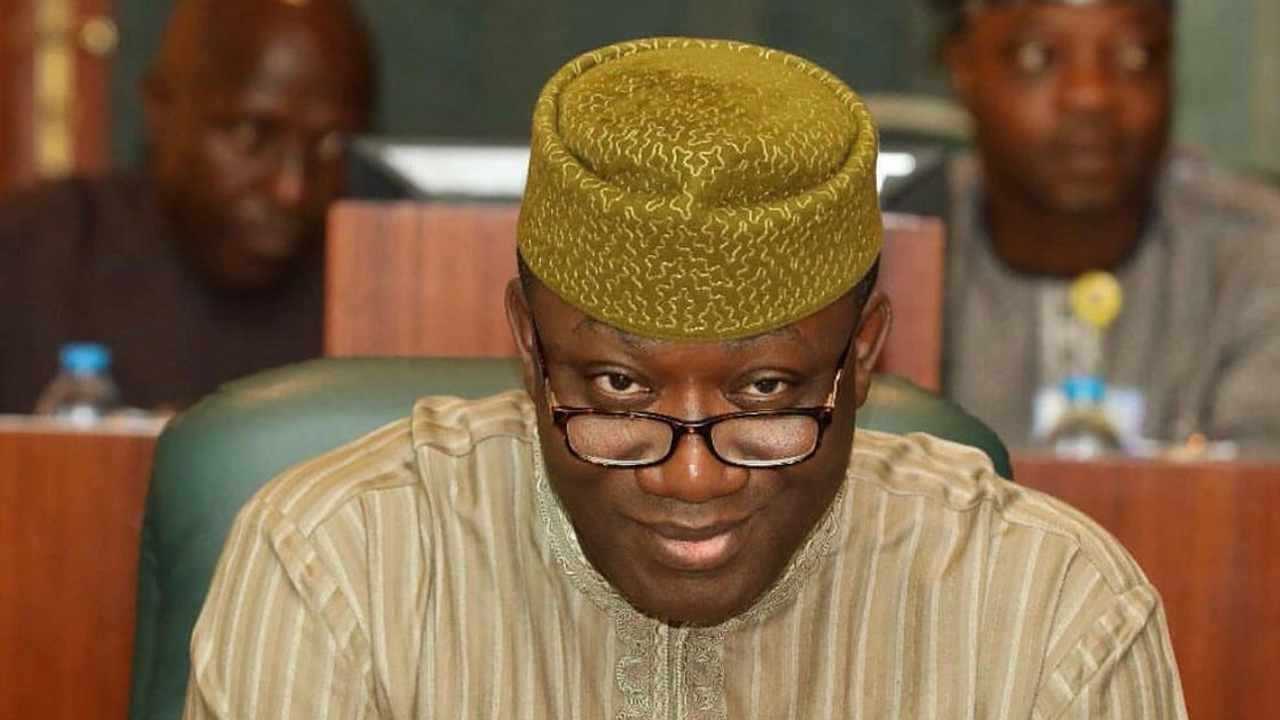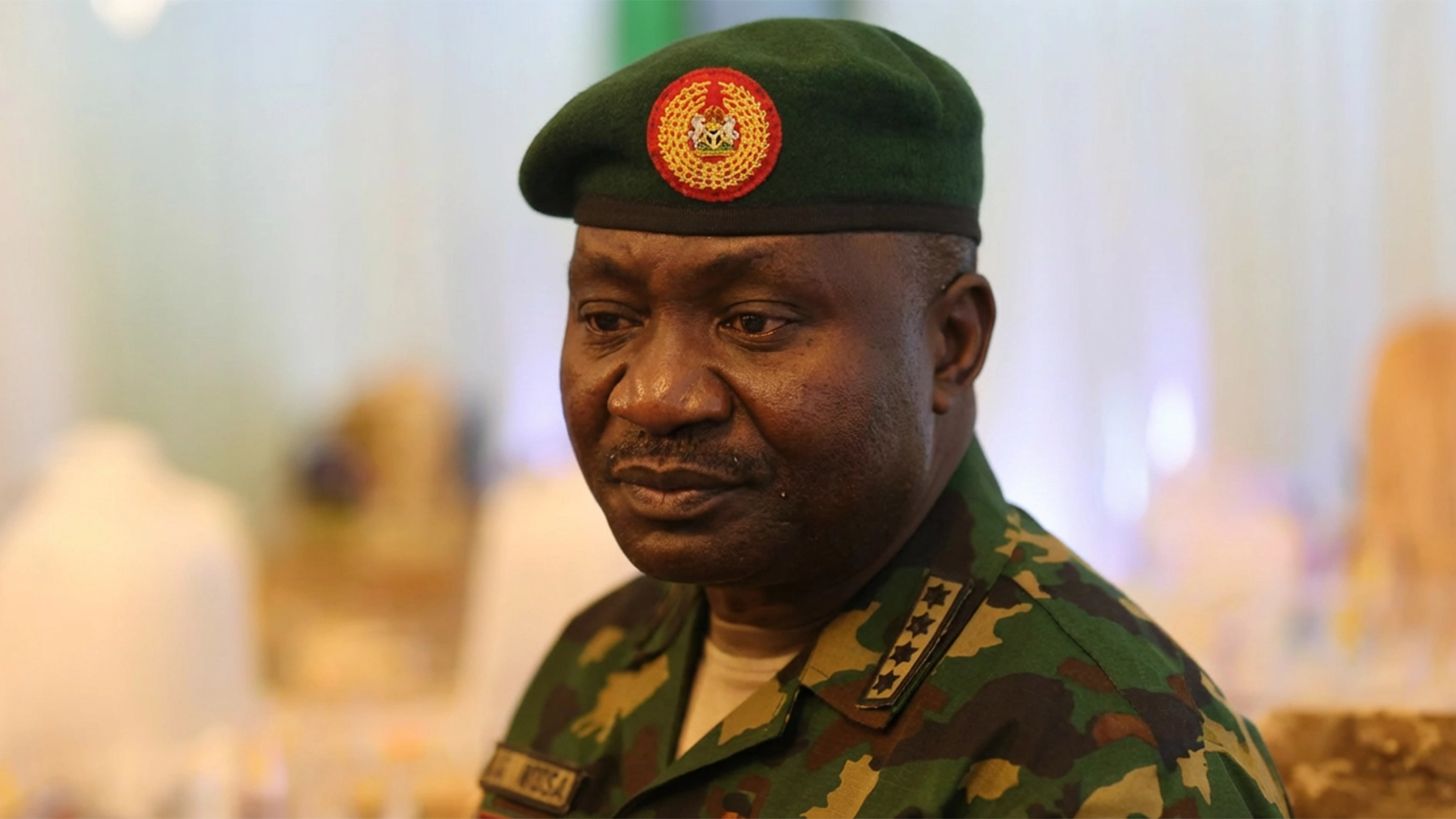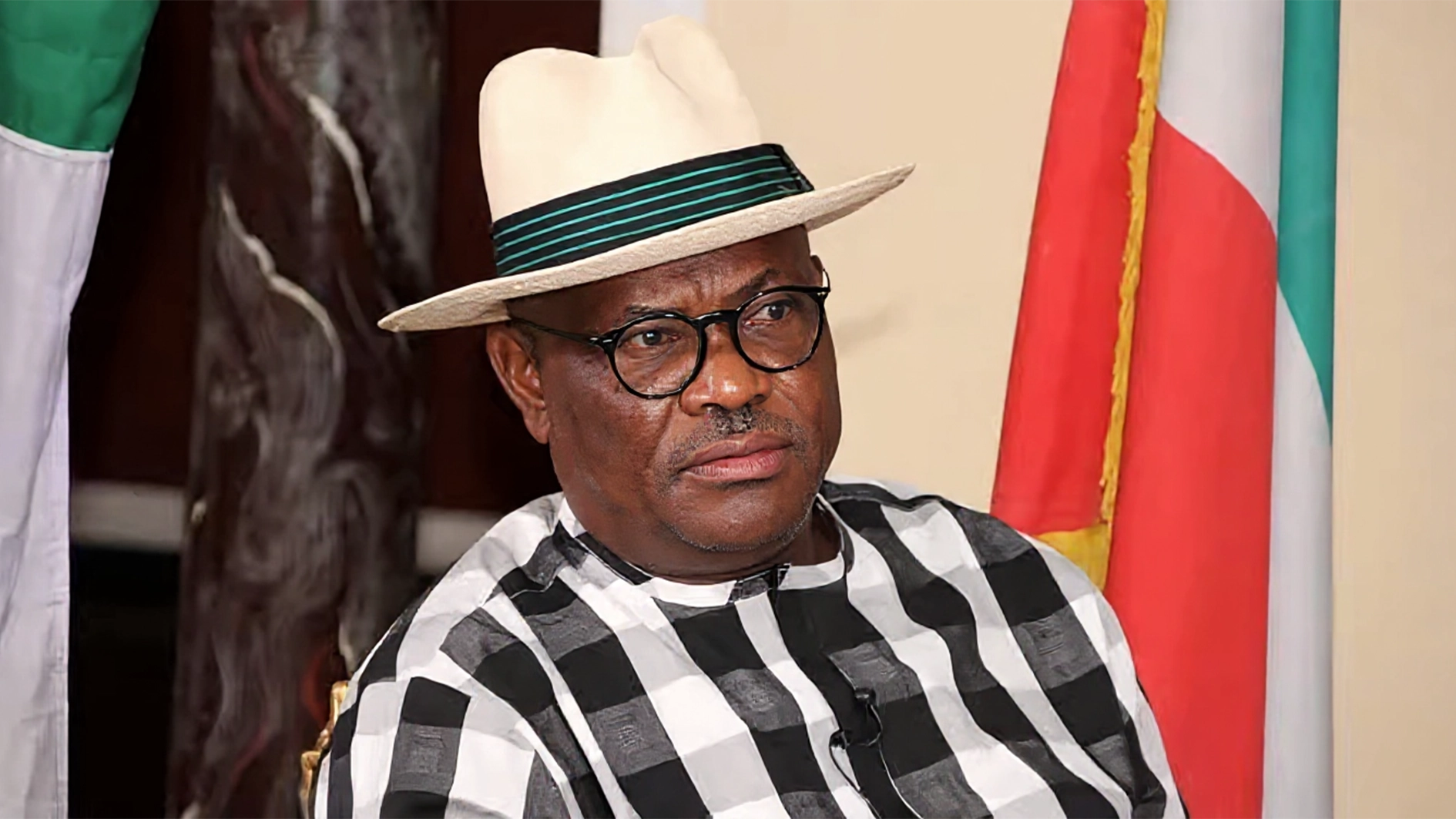
In 2007 governorship election, Oni was the candidate of the Peoples Democratic Party (PDP), while Dr. Fayemi was the candidate of then Action Congress (AC).
The two were the main contenders for the governorship position. At the end of the election, Oni was declared winner, after polling about 170, 000, followed by Fayemi, who polled 108,000. Oni was said to have won in 11 local governments, while Fayemi won in four local councils; while results from Efon Alaye local government was cancelled due to alleged irregularities.
Fayemi approached the election tribunal, which commenced sitting in June 2007 in Ado Ekiti and Justice Usman Bwala headed the five-man panel of justices. Fayemi then challenged the results from 10 local governments on the ground of non-compliance with the 2006 Electoral Act. But after about one year of sitting, the tribunal gave a unanimous judgment in favour of Oni.
Dissatisfied with the ruling of the tribunal, Fayemi headed to the Appeal Court in Ilorin, Kwara State, praying that the Appellate court headed by Justice Mohammed Dantijo set aside the judgment of the lower court because it erred by not ruling on the non-compliance issue raised at the tribunal. He insisted that the elections in those 10 local governments were marred with irregularity.
After perusing the submissions of the counsels of both parties, the Appeal Court nullified Oni’s election and ordered rerun in parts of the 10 disputed local governments.
The supplementary election, which held on April 25 2009 was supervised by then Resident Electoral Commission (REC), Mrs. Ayoka Adebayo and was characterized by violence, such that observers and journalists were beaten and held hostage. What is more, the INEC office at Ido Osi local government was set ablaze. A new twist was then added to the unfolding drama, when the REC suddenly disappeared to unknown destination without declaring the winner of the supplementary poll. She later emerged from her hiding seven days after the election to declare the result of the election. Oni was again declared the winner.
Following the declaration of Oni as the winner, Fayemi once again headed to the tribunal. This time, Justice James Barka led the five members of the tribunal. This time, the candidate of the AC contested the results from Ifaki ward A&B, Orin Ora five wards, and Ipoti ward A&B all in Ido Osi local government.
It was at this tribunal sitting that a very novel idea in settling election matters was introduced by the two contending parties. Whereas, Fayemi’s legal team brought Adrian Forty, a forensic expert from the United Kingdom (UK) for analysis of the votes, Oni group brought John Lazaretto, a criminology expert from the United State of America (USA) to counter the team of Fayemi.
However, when the two foreign experts completed their assignment, the verdict did not favour any of the combatants. The reason for this was probably because the experts were not used to manipulations in their own countries. The two experts reported that 72 percent of the ballots papers used for the election lacked probable value, in other words, those ballots papers were invalid from their findings.
Despite this, the tribunal gave split judgments. Justice Hama Bakar-led majority judgment declared Oni as the duly elected governor and subsequently dismissed the petition of the Action Congress, AC’s gubernatorial candidate, as lacking in merit. The majority judgment declared that the petitioner failed to prove and establish the allegations of malpractices, corruption and non-compliance with the Electoral Act pleaded in his petition.
Barka, in his judgment therefore nullified the elections in Ipoti Wards A and B and a Ward in Orin/Ora for non-compliance, substantially with the 2006 Electoral Act. After the deduction by the judge from the overall scores in all the 16 local government areas of the state, Oni scored 109,391 votes against Fayemi’s 106,816.
But, the minority judgment read by Justice A. Adebara nullified Oni’s election on the grounds of irregularities and declared Fayemi as the winner of the election. The minority judgment said it found merit in Fayemi’s petition.
Once again, not pleased with the judgment, Fayemi headed to the appellate court, presided over this time by the President of the Appeal Court, Justice Ayo Salami. After listening to the submission of the counsels, the panel led by Justice Salami delivered judgment on October 15 2010 in favour of Fayemi, by aligning with the minority judgment of the tribunal. The Appeal Court held that Ifaki ward A&B votes were invalid. Fayemi was then sworn in as Governor of the state on October 16 2010, after Oni had spent three and half years in office.
To properly situate the current legal tussle between the two politicians arising from the governorship primary of the APC, it is imperative to note that against expectations of people, the two combatants buried their old issues when Oni left the PDP and decamped to Fayemi’s All Progressives Party (APC). Oni was then made the Deputy National Chairman, South of the party.
This was the state of affairs when Oni declared interest in the governorship position in early 2018. Fayemi was then a serving minister in Abuja. The rank of the aspirants of the party swelled to 32 because of the belief that Fayemi was not interested in presenting himself for the coveted post. Among these aspirants were close associates of the former governor who rightly or wrongly claimed that Fayemi told them that they should go to the field and sell their candidature.
However, against these permutations, Fayemi declared interest few weeks to the party’s primary. This led to bad blood among the aspirants, to the extent that Oni and other aspirants ganged up against Fayemi. They began to plot against the ex-governor because they felt he would use his connection at Abuja and the structure of the party, which he installed during his first term in office to his advantage.
When the first primary took place, it was disrupted because feelers from the field indicated that the former governor was coasting home to victory. The primary, which was supervised by the Nasarawa State governor, Tanko Almakura was described as a show of shame, as aspirants and their supporters were openly chanting ole; ole (thief) at Fayemi.
However, with the deployment of heavily armed security personnel to the venue of the second primary election, which held at Damlec Event Centre in Ado Ekiti, the exercise, which was conducted under the watchful eyes of the electoral committee members, the police, DSS among others held peacefully. At the end of voting on May 12 2018 Fayemi won with a total of 941 votes, beating Oni, who scored 481 votes to the second place.
It was apparent that the outcome of the poll did not go down well with Oni and some other aspirants. The reconciliation efforts of both the ex-governor and the party were able to calm frayed nerves. Oni, against expectations, even openly campaigned for Fayemi and was at the stadium when President Muhammadu Buhari came to Ekiti to campaign for Fayemi.
In the governorship election held on July 14 2018, the candidate of the APC (Fayemi) defeated the Deputy Governor and candidate of the PDP, Professor Olusola Kolapo, thereby setting the stage for another round of litigations.
Initially, the Oni’s court action came to the people as rumour. Many supporters of APC doubted if Oni could be party to a suit challenging Fayemi’s candidacy. But it turned out to be true. In the suit, Oni urged the court to nullify Fayemi’s candidacy on the grounds that he did not resign from his position as a Minister of Mines and Steel Development 30 days before the APC primary. Oni also stated that Fayemi was not qualified to contest the primary on the grounds that he was indicted and barred from holding public office by the Ekiti State Judicial Commission of Inquiry set up by Governor Ayodele Fayose.
Sources close to Oni said that he went to court because in 2007, he had prevailed on Fayemi not to go to the tribunal, pledging to help Fayemi succeed him after one term in office. Fayemi who gave Oni a cold shoulder allegedly rebuffed this gentleman agreement.
This was why Oni remained adamant despite the intervention of APC elders, who urged him to withdraw suit. The Elders had asked Oni to withdraw the suit challenging the eligibility of the governor-elect, Dr. Kayode Fayemi, in the July 14 2018 governorship election. The APC elders said the withdrawal of the case by Oni and his group would help calm the heated atmosphere in the party.
The group led by Elder Akosile said, “We hereby wish to appeal to Asiwaju Segun Oni and his group to withdraw the case from the Federal High Court, Abuja, so as to facilitate an out-of-court settlement in the interest of the APC Family in Ekiti State, in particular, and Nigeria in general.”
However, Oni’s suit challenging Fayemi’s eligibility had been dismissed by the both the High Court and Appeal Court. At the Federal High Court sitting in Ado Ekiti, presided over by Justice Uche Agomoh, in her judgment she held that the case is “completely lacking in merit.”
The court held that Fayemi was validly nominated by APC and that he was not a public officer envisaged by the Electoral Act, 1999 Constitution and Party Guidelines to have resigned before contesting.
Also, the Appeal Court sitting in Ado Ekiti, similarly dismissed the case filed by Oni against Fayemi contesting his eligibility. The three -man appeal panel presided over by Justice Adamu Jauro, in a unanimous verdict, said Fayemi not resigning as the then Minister of Steel and Mines Development to contest the May 12 2018 governorship primary, where he emerged as candidate, was not enough to disqualify him.
The Appeal Court held that Fayemi’s indictment by Justice Silas Oyewole-led judicial panel of inquiry set up by former governor Ayodele Fayose to try the governor for alleged embezzlement could not bar the governor from office. It said only a conviction by a competent court of law can bar any aspirant from participating in a primary or general election and not a mere indictment by a panel.
With the judgment of the Supreme Court in his favour, Governor Fayemi certainly has the aces in his firm grip. Since he was sworn in, he has made numerous appointments. If the names announced so far are anything to go by, one can safely conclude that loyalists of Oni have been sidelined in the scheme of things.
The governor ensured that only trusted allies made it to the State Assembly. Those elected to the National Assembly, without exception, were also close allies or those who worked for the success of his election at the July 14 2018 governorship election. As if to add more insult to his injury, the position of Deputy National Chairman (South) hitherto held by Oni has been given to former Governor of the state and chieftain of APC, Mr. Adeniyi Adebayo. Since Fayemi assumed office in October 2018, Oni had not attended any public function in the state. Unless the Governor decides to be magnanimous in victory, Oni might be out in the cold for sometime.






